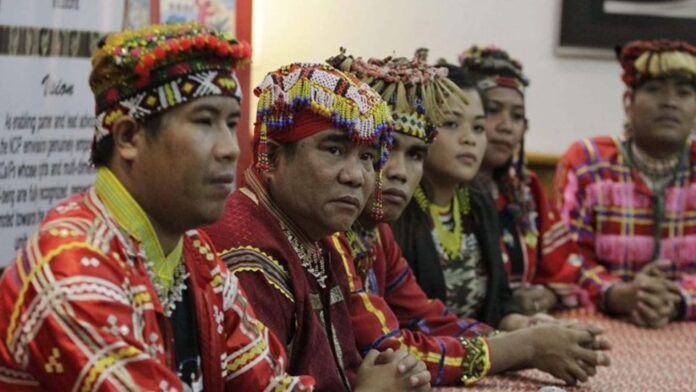The Philippines and the United Nations (UN) Committee on the Elimination of Racial Discrimination held a constructive dialogue on the combined 21st to 25th periodic reports on the implementation of the International Convention on the Elimination of All Forms of Racial Discrimination (ICERD).
Led by National Commission on Indigenous Peoples (NCIP) Chairperson Allen Capuyan, the Philippine delegation highlighted the significant strides made in the promotion and protection of Indigenous Peoples’ (IPs) rights pursuant to the 1997 IP’s Rights Act (IPRA) and other relevant laws during the period under review from 2009 to 2018 during the meeting held in Geneva, Switzerland on April 19 and 20.
These include the enactment of 215 laws, including the landmark Bangsamoro Organic Law, covering a wide range of rights under ICERD; issuance of 260 Certificates of Ancestral Domains Titles and 252 Certificates of Ancestral Land Titles; awareness programs on cultural practices and ancestral domains; and expanded access to health services and educational assistance, among others.
In line with its rights-based development agenda pursued through participatory and inclusive processes, the Philippine government, through the NCIP, fully enforces the Free, Prior, and Informed Consent process, especially the development projects involving mining and energy infrastructure.
To further improve the provision of services to indigenous cultural communities, the NCIP and other government agencies work with the World Bank to strengthen the institutional capacity to collect comprehensive data on IPs that will be accessible to policy-makers and stakeholders through a single digital portal.
The Philippine delegation also emphasized that the government continues to advocate IPs’ interests, including in the areas of environment and climate change, disaster risk reduction, and gender development, in its bilateral and multilateral engagements in the UN and other fora.
In this regard, the Foreign Assisted Program and International Relations Office of the NCIP was recently created to ensure IPs’ representation and effective participation in the conduct of the country’s external relations.
The delegation also reiterated the Philippines’ longstanding humanitarian tradition and abiding commitment to the 1951 Convention Relating to the Status of Refugees and its Protocol, recalling the recently launched Complementary Pathways.
The program offers durable solutions for refugees by providing a safe and regulated avenue of admission and stay in the country through education, as well as the country’s accession to the 1961 Convention on the Reduction of Statelessness.
The Philippines also recently issued an administrative regulation to establish a fair, efficient and non-adversarial procedure for the protection and assistance of refugees and stateless persons.
An inter-agency committee was institutionalized in February 2022 tasked to facilitate access to socio-economic services by refugees and stateless persons.
While the accomplishments are significant, Capuyan nonetheless acknowledged that more has to be done by the government amid various challenges, including the weaponization of human rights by leftist extremists that actively radicalize IPs and misrepresent them in the UN to advance their violent agenda of overthrowing the duly constituted government of the Philippines.
Capuyan underscored that the Philippine government embraces a whole-of-nation and whole-of-government approach to protect the Filipino people from the “efforts of the CPP-NPA-NDF (Communist Party of the Philippines-New People’s Army-National Democratic Front) to divide the Filipino people and propagate violence”.
“The Philippine Government is in full throttle in operationalizing ICERD… We unify our people, we capacitate our people, and we mobilize our people for a better future with no one left behind,” he said.
Capuyan was joined in the delegation by Philippine Permanent Representative to the UN in Geneva, Evan P. Garcia; Presidential Human Rights Committee Secretariat Executive Director, Undersecretary Severo Catura; and Council on Welfare of Children Chairperson, Undersecretary Angelo Tapales; and other officials from the Department of Justice, Office of the Court Administrator of the Supreme Court, Council for the Welfare of Children, Philippine Permanent Mission to the UN in Geneva, Presidential Human Rights Committee Secretariat, and NCIP.
The Philippines signed and ratified the ICERD on March 7, 1966 and Sept. 15, 1967, respectively.
Article 9 of the ICERD obligates States Parties to submit to the UN Secretary General, for consideration by the Committee, a report on the legislative, judicial, administrative and other measures adopted giving effect to the provisions of the Convention.
The Philippines’ last constructive dialogue with the Committee was held in 2009.
The Committee raised questions and observations on the following themes: domestic law and institutional framework to implement ICERD, hate speech, statistics on IPs, situation of minority groups and IPs, situation of Internally Displaced Persons, and training courses on racial discrimination.
The Committee is composed of 18 experts from different countries, with Verene Albertha Shepherd of Jamaica as chair and Michal Balcerzak of Poland as rapporteur for the Philippines. (PNA)


